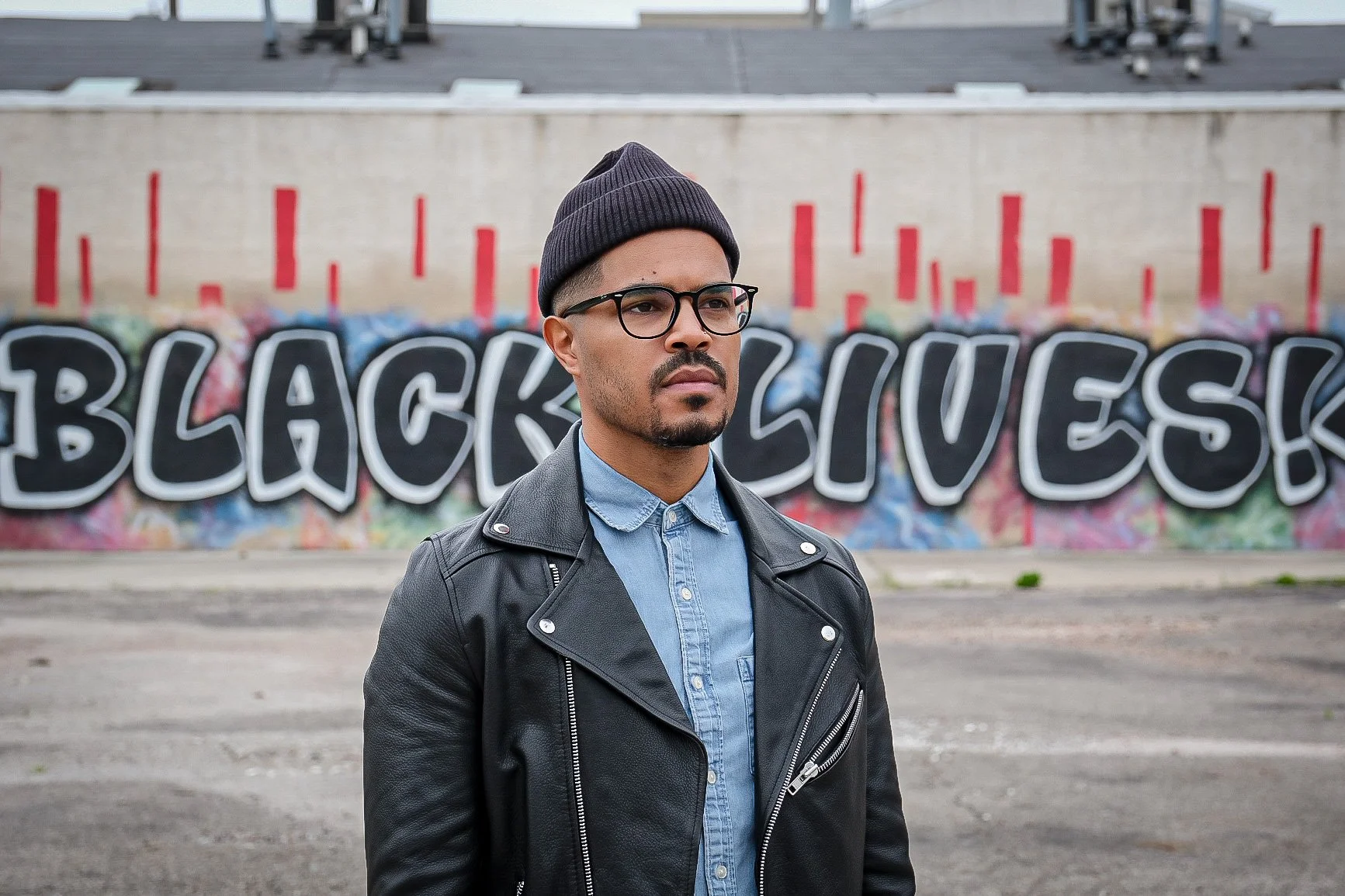Teaching Overview
For more than a decade I have taught undergraduate and graduate courses within (and across) several fields and disciplines. My overall objective as an instructor has been to facilitate the political edification of my students for the purpose of transforming the educational institutions and society within which we live, work, and learn. I have specifically taught undergraduate courses in Africana Studies, Communications, and Education Studies as well as graduate-level courses in Higher Education and Student Affairs.
Currently, my primary contributions to teaching broadly focus on issues of educational equity in schools, postsecondary institutions, and their social contexts. Most of my teaching load each year includes courses that explore issues of ability, class, gender, race/ethnicity, and sexuality in education and its social contexts. Working primarily from a critical theoretical tradition (e.g., critical race theory, critical media literacy, and paradigm intersectionality), my courses deconstruct relationships of power across categories of social difference, systems of oppression, and structures of domination. The remainder of my courses have focused either on core subjects within the field of (higher) education (e.g., student development, leadership, and administration) or research methods and data analysis.
My overall pedagogical approaches to teaching and advising are guided by a transparent commitment to demonstrate good love, provide healthy choices, and offer students the opportunity for second chances. By demonstrating good love I mean that my interactions with students are grounded in a human-centered approach, one that places their humanity before their pedigree, productivity, or performance. Good love also involves embodying culturally-sustaining practices that recognizes the unique funds of knowledge with which each student enters the course. Healthy choices builds upon good love in that I am intentional in determining (and re-determining) how each class session and assignment deadline exists in relation to the individual and collective emotional health of students in my courses. For instance, I routinely confer with students about how they may be feeling at different points in the semester, either in relation to the broader external environment, their other classes, or both. Based on this conferral, portions of the class may be reconfigured to momentarily engage in collective healing practices during critical sociopolitical moments (e.g., after a national tragedy or violent policy decision impacting students and their families). By having collectively named and addressed the palpable tension as a community of learners, we are able to move forward without it as a substantive barrier to engaging in the day’s lesson. Lastly, and importantly, second chances present an opportunity for students to make mistakes – in relatively low-stakes environments – and receive constructive feedback in order to improve their performance. A common way this is used in my courses is a transparent 7-day “revise and resubmit” policy for writing assignments on which a student either receives a low score or feels they could have submitted better work under different circumstances. In my experience, this pedagogical trifecta – in conjunction with other technical dimensions of teaching (e.g., scaffolding curricula) and advising (e.g., professional development and job market preparation) – engenders an environment in which students and I can share responsibility for achieving our educational goals without sacrificing the social and emotional materiality that makes us full human beings.
Philosophy and
Pedagogical Approach
Courses at Michigan
ACTIVISM AND SOCIAL MOVEMENTS
Activism and Social Movements in College offers an opportunity for students to better understand the empirical, historical, practical and theoretical foundations of today’s sociopolitical moment. The course particularly focuses on noteworthy events and social movements during the 20th and early 21st centuries (e.g., Civil Rights Movement, Gay Liberation Movement, Ethnic Studies Movement, Black Lives Matter Movement, and Undocumented Students Movement). Additionally, the course is concerned with increasing our understandings about activism and social movements through examining the role of new and digital media in processes of social change.
POWER, PRIVILEGE, AND THE POLITICS OF DIFFERENCE
Power, Privilege, and the Politics of Difference in Higher Education examines how systems and relationships of power shape research, policy, and practice in higher education and its social contexts. The course uses historical and sociopolitical perspectives from a variety of fields and disciplines to interrogate how institutionalized systems of power and structures of domination, primarily within the United States, work together to drive inequities across social differences of ability, class, gender, race/ethnicity, religion, and sexuality. These inequities are then situated within the context of higher and postsecondary learning, on-campus and beyond.
RACE, RACISM, AND ANTI-BLACKNESS
Race, Racism, and Anti-Blackness in Higher Education provides students with a moderate to advanced engagement with theories of racial capitalism, racial formation, and racial socialization in college and its social contexts. In particular, the course offers a critical examination of higher education access and equity through critical sociological and anthropological lenses, which foreground racial hierarchies’ predication on anti-Black settler-colonial genocide at their very foundation.
RESEARCH METHODS & DATA ANALYSIS
Research Methods & Data Analysis aims to provide students with the epistemological foundations and basic skills for 1) conducting empirical research, and 2) interpreting data to address their professional needs, interests, and problems. More specifically, students learn about the nature of research, various data collection and analytical approaches, how to identify and access credible scholarship, and how to critically consume research reported by public sources.
Honors & Awards
2024
2024
2024
2023
2019
2019
2019
2012
2007
2007
Senior Fellow, Center on the Developing Child, Harvard University
Collegium of Scholars, Dr. Martin Luther King, Jr. College of Ministers and Laity, Morehouse College
Diversity, Inclusion, Justice, and Equity Award, University of Michigan, Marsal Family School of Education
John Matlock Cornerstone Award, University of Michigan, Office of Academic Multicultural Initiatives
Faculty Fellow, USC Center for Excellence in Teaching Faculty Leadership Institute
Faculty Member of the Year, USC Rossier School of Education, Postsecondary Administration and Student Affairs Network
Outstanding Faculty Member of the Year, USC Rossier Student Organization
Phi Kappa Phi Honor Society
Golden Key International Honour Society
Omicron Delta Kappa National Leadership Honorary Society
Faculty Resources
(Download Available)
2019
2021
2023
Job Market Materials (zip file)
Spencer/NAEd Postdoc Materials (zip file)
Pre-Tenure Review Materials (zip file)

